Dominant themes: proving marketing ROI, choosing trusted advisors, the opportunities emerging from new data privacy laws, and innovation in storytelling
Last week, Ebiquity partnered with Mediatel Events to stage a conference on the future of brands. Bringing together senior marketers and leading figures from the media agency and ad tech worlds, our event looked to identify and address the challenges faced by those responsible for creating, growing, and sustaining great brands.
There were many interesting issues and topics discussed throughout the day, but I’d like to highlight four themes which made for particularly good debates. These were:
(a) Proving and demonstrating return on marketing investment
(b) How brands can build a network of trusted advisors
(c) The implications on marketing of impending EU legislation on data and data privacy
(d) The importance of innovation in brand storytelling using digital technology and media
A) Proving and demonstrating return on marketing investment
As one of the first panelists of the day, Mark Evans, CMO of market-leading insurance company Direct Line Group (DLG), advocated for the use of “full-fat econometrics” – or using the full suite of tried and tested econometric solutions – combined with a test-and-learn approach. These tools are highly effective at proving to internal stakeholders – such as board-level executives and the CFO – the contribution that marketing spend can make to a company’s bottom line.
Evans cited research to highlight exactly how important this is for marketers: CEOs today trust 80% of their CFOs but only 20% of their CMOs. And with marketers being under-represented in the boardroom, the task at hand is made more difficult. As well as “being away with the digital fairies” and “chasing shiny new tactics”, marketers have been guilty of using often meaningless, vanity metrics for too long. It has now become critical for CMOs to learn to speak the language of the C-suite, and leveraging today’s analytical approaches can provide a big part of the solution.
Several other panelists similarly challenged the rapid march into digital advertising. Denise Turner of Newsworks said that many brands had “stopped employing critical faculties and rushed headlong into digital advertising”, while Richard Bradford of Wavemaker agreed that historically, “digital advertising was given a free pass”. Ebiquity’s Andrew Challier said that many marketers’ decisions some years ago to invest “30, 40, 50% of their budgets in digital advertising was about as profound as going to a restaurant and saying, ‘I want to eat food!’”.
The consensus of the conference was that the tide has turned on digital advertising, particularly in the area of measurement and evaluation, and many more marketers and their analytical partners are now measuring and reporting what matters. As a sign of improvement, no longer do agencies come to advertisers claiming, “Digital’s the answer; what’s the question?” and instead, marketing dollars are increasingly invested where meaningful returns are being generated. Jacob Lachmann of AudienceProject celebrated the fact that “more than ever, decisions are driven by data”. Many agreed that this process of rebalancing and recalibration was accelerated – though not caused by – Marc Pritchard’s speeches at the IAB and ANA at the start of 2017, yet more remains to be done.
B) How brands can build a network of trusted advisors
In the increasingly-complex digital marketing ecosystem, brands need honest, impartial, and independent advice on what decisions they should make that will benefit both brand and business performance. In addition to having access to the right data, sound analytics, and robust models, many panelists also agreed that brand managers need partners who are committed to making decisions that are in the brand’s best interests. Agencies, ad tech vendors, and social media platforms must realise that they will achieve more success when they do their part to enable their client’s brands to grow.
Steve Pollack of Nestlé UK & Ireland has found that it really helps if brands have team members who have worked agency-side in the past and can ask agencies all the right questions. Will Hodge of Karmarama built on this advice, recommending clients assemble a team of “consiglieri” who can advise across many different areas of specialism, arguing: “You prove your worth in the heat of battle by calling people out when they’re not delivering an unbiased view”. Jenny Biggam of the7stars gave advice for those seeking to become trusted advisors and encouraged all partners to realise that becoming a trusted advisor takes time.
Sandy Ghuman and Charlie Crideford from Sky were billed to give a case study on how they overcame the challenges in implementing the broadcaster’s data management platform. They did that, of course, but they also told a powerful story of what trusted advice means in practice. In introducing Sky’s DMP, the company’s digital and insights teams broke down internal barriers. They also worked seamlessly with partners from their media agency Mediacom, from Adobe, and from Rezonence, to create and serve relevant content to current and prospective Sky customers visiting its owned media properties.
C) Implications on marketing of impending EU legislation on data privacy
There is no doubt that data has been the primary driver of the programmatic advertising promise of mass personalization at scale. With the looming implementation of the EU’s General Data Protection Regulation (GDPR) and the e-Privacy directive in the following 12 months, Mediatel convened a panel to consider the impact of these two regulations on digital marketing.
Dominic Chambers of Jaguar Land Rover argued that the regulations will fall harder on agencies and data vendors than brands, particularly because brands have closer – and more direct – relationships with customers. But they will focus brand owners’ attention on not spamming and not interrupting these customers, engaging in genuine dialogue, and upping their game.
Tim Hussain, head of Ebiquity Europe’s Technology Practice, suggested that programmatic will likely be curtailed and changed by GDPR and e-Privacy, but this does not mean the end of digital advertising as some have predicted. The “murky middle” – of companies who buy and scrape, package up and sell data – are likely to have their activities significantly curtailed. But this will be positive for the industry and for brands, as it will clean up the data provider landscape and generally improve data quality. Yves Schwarzbart of IAB UK agreed and predicted there would be a return to contextual advertising as a result, with brands targeting customers based on their interests and publishers’ content rather than simply trying to locate individuals.
D) The importance of innovation in brand storytelling
And suitably for a conference on the future of brands, innovation was a key theme running across the day. While brands shouldn’t focus relentlessly on the latest new shiny object – on artificial intelligence, virtual reality, or virtual assistants – they should be open to experimenting with what’s on the distant horizon as well as what’s just around the corner.
Ad industry veteran Patrick Collister – one-time Creative Director at O&M – has spent the past five years as the creative lead in Google EMEA’s Zoo team. He summed up the new rules for communications with the clear direction to test and learn, citing former Google chairman Eric Schmidt’s dictum: “Spend 70% of your budget on what you know works, 20% of what you think works, and 10% of doing new stuff which might or might not work”. Collister’s prescription for innovation includes using data, rewarding people with experiences, and making brands more useful, useable, and delightful. In essence, use digital to create storytelling content in an innovative, evidence-based, empathetic way.
The conference also dipped into the topic de jour, and heard a clear description of how Blockchain – a foundational technology – will likely impact marketing as profoundly as the internet has over the past 20 years. And although her session on Blockchain began with puzzled looks on delegates’ faces, seasoned media CMO, Anne Goodman, set out powerful use cases for the technology. These included validating vendors and auditing transactions in the digital media supply chain.
Tracey Follows, founder of futures consultancy Futuremade, took the conference even further into the unknown. She suggested brands have new roles to play in breaking down and blurring boundaries in society, championing and empowering health not wealth, and using biometric as well as behavioral data to help build a less stereotyped world.
In summary
Mediatel Events always bring together an eclectic mix of marketing professionals and challenging thinkers at the top of their game. We hope that all who attended, including many of our clients, walked away with similarly great insights and ideas for the years to come. We look forward to facilitating and sponsoring another event in the future through our partnership with Mediatel Events.
Ebiquity’s Group CEO, Michael Karg, gave the opening address at the Mediatel event. This is summarized in this blog here.

